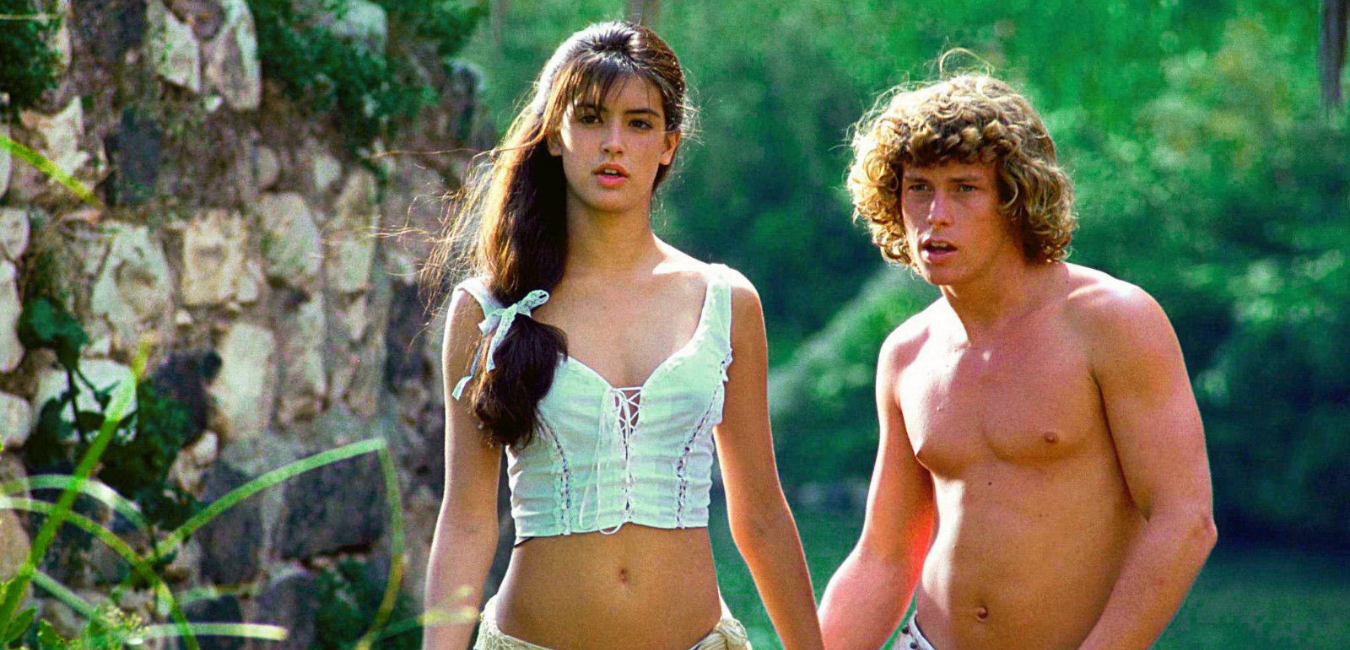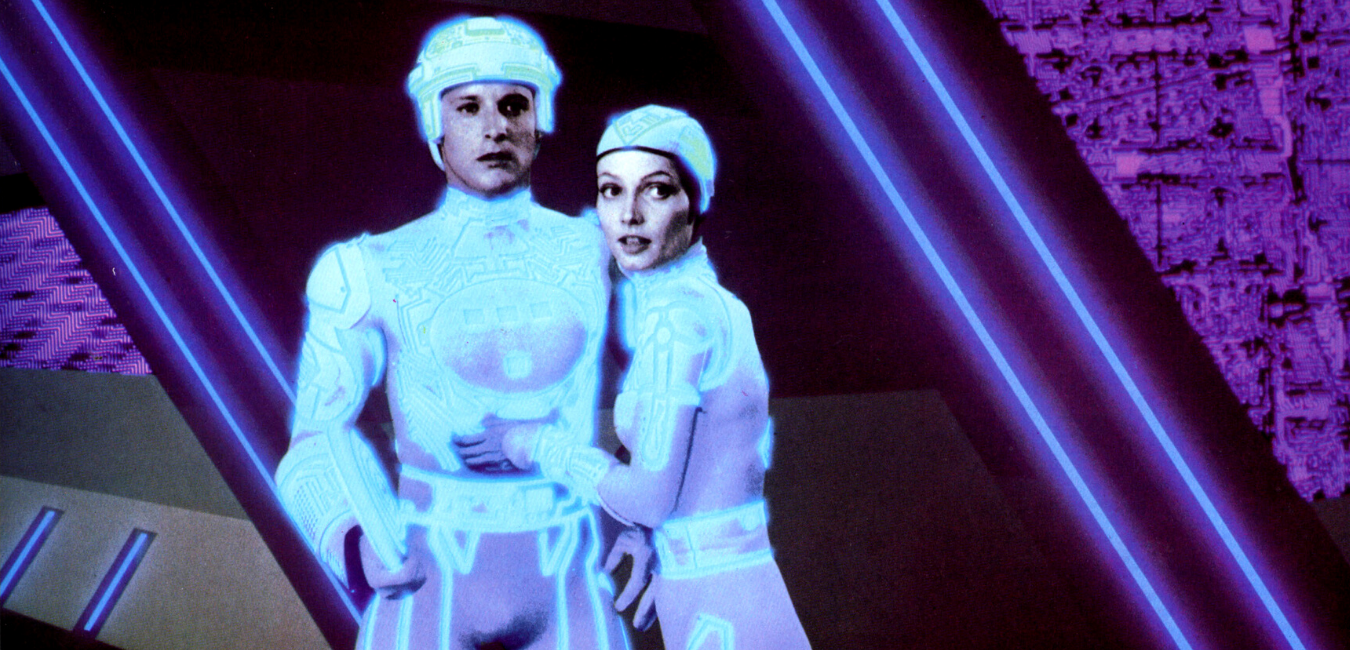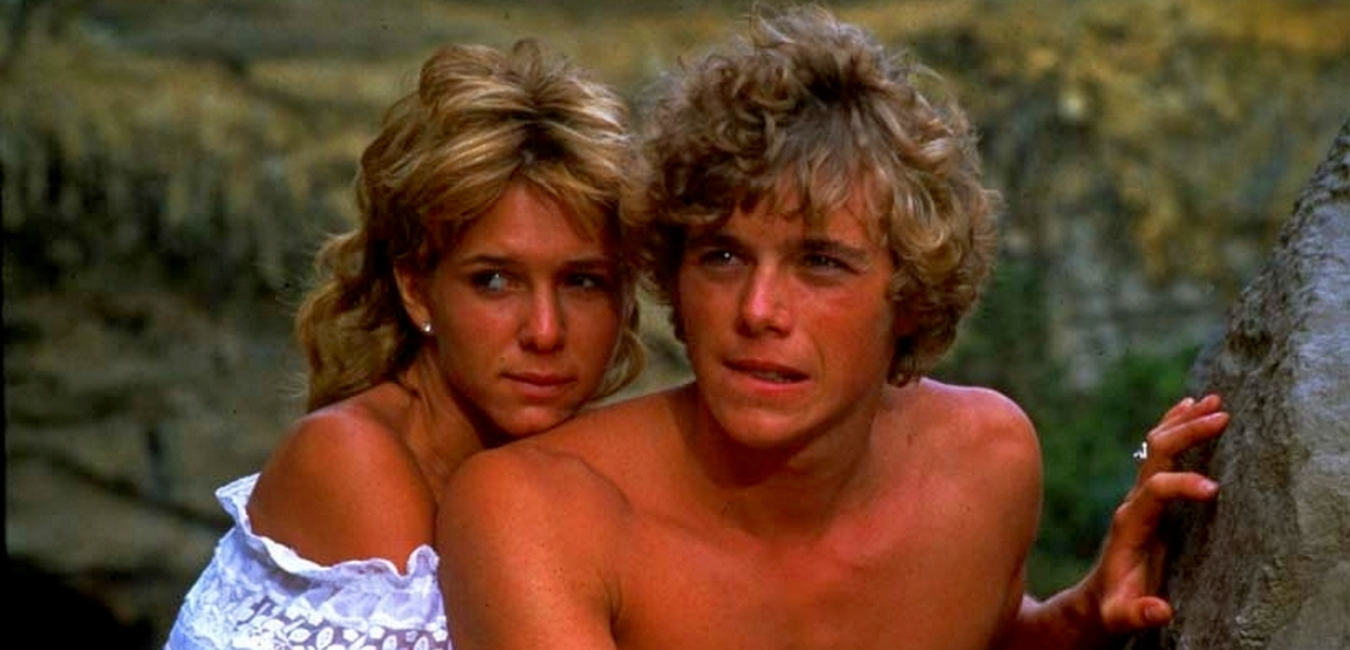Remembering why 1982's 'Paradise' was forgotten

Phoebe Cates (left) and Willie Ames lose themselves (and their tops) in 1982’s “Paradise.” (Embassy Pictures/MovieStillsDB.com)
"Paradise"
Released May 7, 1982
Directed by Stuart Gillard
Where to Watch
Harvey Dent tells us in “The Dark Knight” that “It’s always darkest before the dawn.” “The Dark Knight” was the biggest hit in one of the great movie summers - 2008 - and I can’t help but think about that quote as we recall the great movie summer: 1982, which for all of its classic releases, also debuted “Paradise.”
It’s possible that you dimly recall a movie named “Paradise.” There’s a Diablo Cody-directed comedy drama about a young girl wrestling with her religious faith, but that movie was released in 2013. Nor am I speaking about the 1991 “Paradise” featuring Don Johnson and Melanie Griffith raising a young Dakota … no, scratch that, Elijah Wood. And the 2016 Russian drama “Paradise” is straight out.
No, this “Paradise” features Willie Ames and Phoebe Cates as young, white, and taut teen travelers in the Middle East. Their traveling group is massacred by a band of slave traders led by a man known as the Jackal, so David (Ames) and Sarah (Cates) escape to an isolated desert beach where they must learn to survive, but also figure out the adolescent physical and emotional changes their bodies are going through. The Jackal, however, is still on the hunt for them, and Sarah in particular.
Again, all of this may sound vaguely familiar. That’s because Columbia Pictures found financial success with 1980’s “The Blue Lagoon,” another survivalist romance movie with young adults in several states of undress. That movie starred Christopher Atkins and Brooke Shields, who was only 14 at the time. Filmmakers got around her age restrictions by using an older body double for nudity, but the very idea of using a young girl’s nude body as a selling point for a movie was extremely skeevy then, and unthinkable now. As it turns out, being derivative from conception to execution is the least of the problems here.
Cates was 17 when they started filming “Paradise,” which also includes nudity. However, the producers behind “Paradise” still found a body double to increase the amount of nudity in the movie without telling Cates. The actress was pissed when she found out, bowing out of publicity for the theatrical release and disowning the movie. She even sided with Columbia when the studio went after “Paradise’s” Embassy Pictures for blatantly copying “The Blue Lagoon.”
“I didn’t show up at their parties, didn’t go to any screenings, didn’t travel anywhere they asked me to,” Cates told People magazine in 1982.
Beyond the Adam-and-Eve-with-more-boobies initiative on screen here, “Paradise” offensively others any non-white character in the movie. The Jackal captures every negative Islamic stereotype possible in his relentless pursuit to capture and enslave Sarah, and there are no other diverse characters to offer a counter portrayal. “Paradise” is a movie without nuance for everybody involved, but while David and Sarah’s dialogue is simply inane, the complete lack of depth offered for other cultures is an unforgivable sin.
“Paradise” opened in second place with $2.8 million box office gross for the weekend. It would lose half its audience every subsequent weekend, and vanished from theaters by its fourth week. “Paradise” made a total of $5.5 million during its original theatrical run, making just enough to squeak into the top 100 highest grossing films of 1982 at number 95. At least Cates’ single for the film, also named “Paradise,” did well enough to top the charts in Italy.
Audiences have no affection for “Paradise” at this point, scoring a lowly 43 percent on Rotten Tomatoes. The movie also bombed with critics.
“Two tickets to ‘Paradise’ would make the perfect gift for one’s worst enemies, or for those most in need of a snooze,” wrote Tom Shales for The Washington Post.
Unlike many of the films we’re about to highlight this summer, “Paradise” has no cultural legacy. There’s no physical version of the film that’s readily available, and it’s currently unavailable on streaming platforms. The version I saw was a low resolution upload to YouTube. Searching for the movie will likely bring up all the other versions of “Paradise” mentioned earlier. If you were in the mood to watch something like this, you’d likely just go for “The Blue Lagoon.” It’s not even the most memorable nude scene with Cates, which imprints itself into the psyches of male Gen Xers later that summer with “Fast Times at Ridgemont High.”
There’s just no reason to go out and seek to watch this movie, unless by some chance you were writing a column about 1982 movie releases and this was literally the only film that came out that weekend. These were some dark weeks for a certain writer, by which I mean me.
But thanks for hanging with me. The good news is that the dawn of the summer is just around the corner and doesn’t stop for several months.
At the Box Office: Lest anybody believe that “Paradise” failed because American audiences were too high minded for gratuitous nudity and lazy storytelling, “Porky’s” remained the box office champ for the eighth straight week with $3.4 million over the weekend, bringing its total to $71.9 million.
With “Paradise” in second place, “The Sword and the Sorcerer” lands in third place with $2.6 million in its third week. The Albert Pyun-helmed film quickly became profitable, but would soon be eclipsed in the genre with next week’s debut.
Best Picture winner “Chariots of Fire” continues its strong box office run to take fourth place in its 33rd week. The drama about British runners grossed $1.7 million over the weekend (a 5% increase over the previous week) to bring its domestic total to $47 million.
Rounding out the top five is the Blake Edwards comedy “Victor/Victoria,” starring Dame Julie Andrews, with $1.4 million.
Next Week: "Conan the Barbarian"
Mark is a longtime communications media and marketing professional, and pop culture obsessive.




